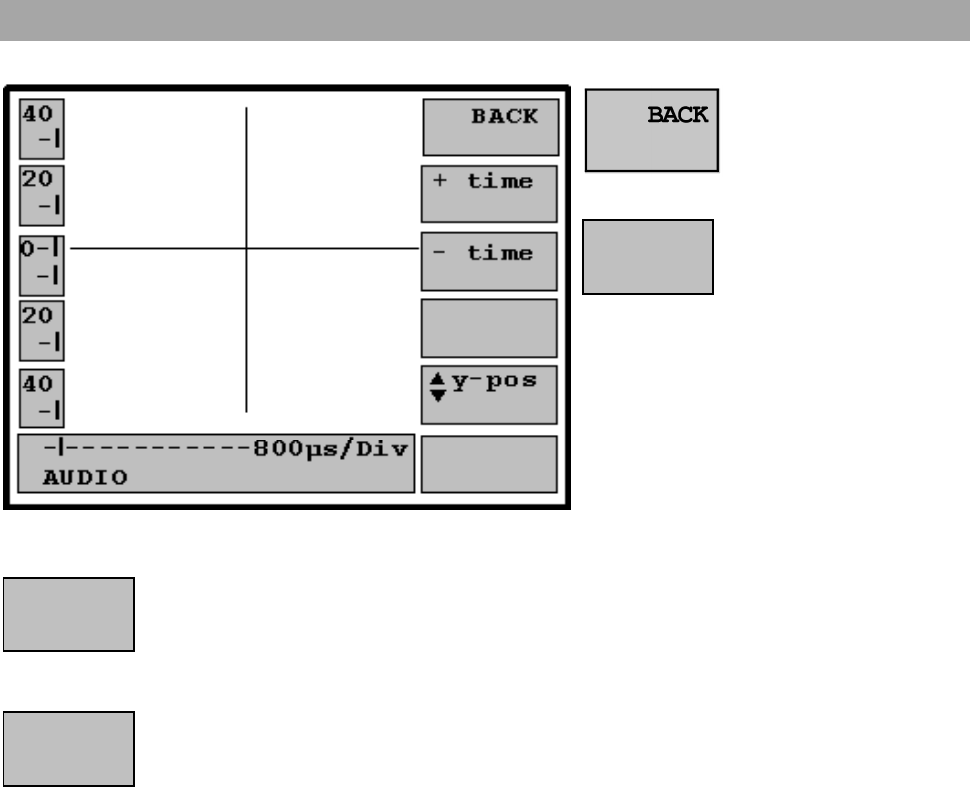
Audio Scope
Audio Scope
The last set menu is
called up.
Increasing time / unit
With this function, the
audio signal can be com-
pressed on the display.
Eight time-stages are
available. The unit switches to the next
highest time stage once the button is
pressed. If the softkey field no longer
changes colour, the highest time stage is
reached.
Reducing time / unit
With this function, the audio signal can be lengthened on the display. Eight time-
stages are available. The unit switches accordingly to the next lower time stage,
when the button is pressed once more. If the softkey field no longer changes col-
our, the lowest time stage is reached.
Position of the audio signal
With the cursor buttons, the vertical position of audio signal can be changed. The
trigger point, which lies at 0 V, is set or changed with this button.
+ time
- time
×y-pos
Measuring the FM hub
The FM hub of the received audio carrier can be measured in the SCOPE menu.
The scale on the left margin of the screen serves to measure the audio FM hub. It
is divided in 10 kHz increments (a secondary graduation line) for TV and radio re-
ception and in 20 kHz increments for SAT reception. The condition of the audio
signal can be changed by using the cursor buttons.
Measuring an audio signal via the AV socket (SCART)
An audio signal can be fed-in via the AV socket (SCART) and represented on the
oscilloscope.
For this purpose, the function CVBS input is to be selected in the AV menu. The
maximal input voltage is 2 V
pp
. The scale is divided into 0.25 unit.
67


















